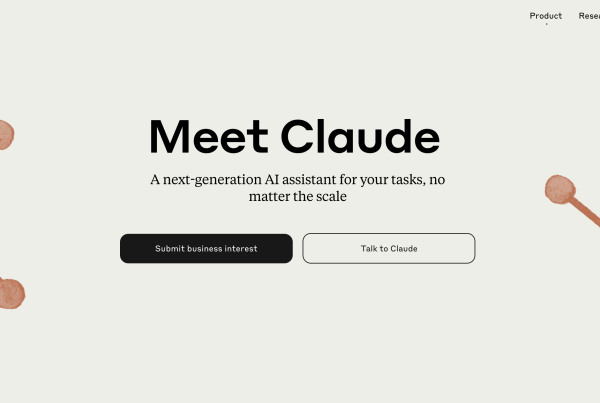In recent years, there’s been a significant rise in the use of AI text generators like ChatGPT, Jasper, Copy AI and so many more for content creation. However, this has raised concerns about the impact of AI-generated content on search engine optimization (SEO) and whether search engines like Google can detect such content.
Search engines like Google and Bing use sophisticated algorithms and machine learning techniques to analyze the content of web pages and determine their relevance and quality.
These algorithms are designed to identify and penalize websites that use spammy techniques to manipulate search rankings. However, the question is whether these algorithms can distinguish between human-written content and AI-generated content.
According to a study conducted by Fractl and published on The Verge, AI text generators like ChatGPT could create a “tsunami” of spam and bad content. It’s easy to see how when playing with any new AI text generation tools. The study found that AI-generated content was able to fool humans into thinking it was written by a human in most cases.
This is a situation that search engines absolutely want to avoid.
Large language models (LLM’s) do have a certain pattern that is recognizable by powerful tools developed by Google and Bing, but also by companies like Winston AI.
Winston AI is trained on huge amounts of data generated by AI, and can easily detect content that was made by LLM’s.
Search engines are constantly updating their algorithms to improve their ability to detect spammy content, including AI-generated content. In a blog post on the Google Webmasters Central Blog, Pandu Nayak, a technical staff member at Google, hinted that long-form content was beneficial for SEO. This suggests that search engines may prioritize longer, more detailed content over short, low-quality content.
In an article on ZDNet, the author tested three online AI detectors to see if they could identify text generated by ChatGPT. The results were mixed, with one detector being able to identify the AI-generated text with a high level of accuracy, while the other two were less effective.
Winston AI is able to detect with a 99.6% accuracy any form of AI generated writing, including ChatGPT’s latest GPT-4 update, Bard, Llama, Bing ChatOpen Assistant, Jasper, Copy.ai and Rytr.
Overall, the question of whether search engines can detect usage of ChatGPT and whether they consider AI-generated content as spam is a complex one. While AI-generated content has the potential to flood the internet with low-quality, spammy content, search engines are constantly updating their algorithms to improve their ability to detect and penalize such content. In the meantime, content creators should focus on creating high-quality, long-form content that provides value to their readers.



